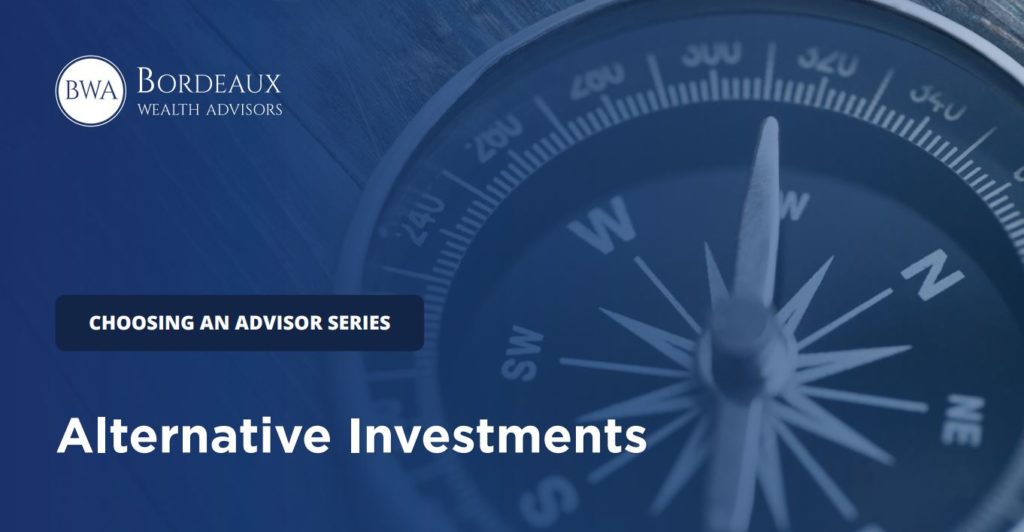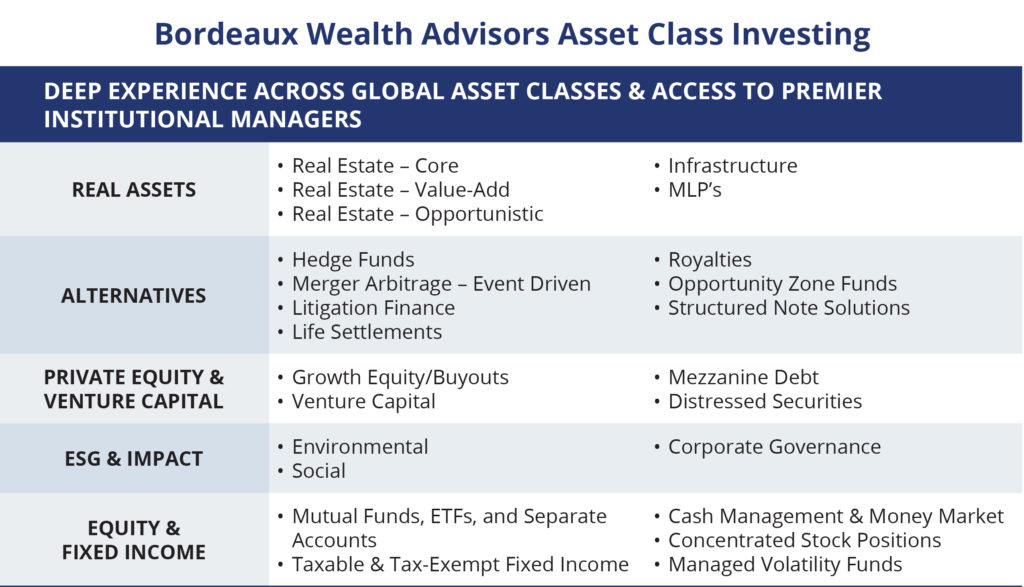
What are alternative investments? Broadly speaking, alternative investments encompass a wide variety of investments and strategies that have the potential to offer enhanced return opportunities and diversification to fixed income and equity markets. Oftentimes, they are investments that may be relatively illiquid, are not publicly traded or use nontraditional strategies.
Why do they matter? Bordeaux Wealth believes investing in the alternative space can complement investment portfolios with exposure to nontraditional risks that stocks and bonds cannot provide. Especially with the outlook for the bond market over the next decade, we believe it is more important than ever to introduce alternative investments to one’s portfolio.
If we evaluate the risk exposures of a typical portfolio of equities and fixed income securities, a disproportionate amount of risk is attributable to equity market risk. Many investors are unaware of this bias and the impact it can have on portfolio outcomes. One way to reduce this dominant equity market risk exposure could be to introduce an allocation to alternative investments that have displayed a historically lower correlation to equity markets. As such, we believe that adding alternative asset classes can help reduce the large risk allocation to equities and may provide greater diversification benefits than a traditional “60/40 diversified” portfolio.
We believe that the keys to successfully capturing these benefits are to conduct thorough due diligence on each potential alternative investment opportunity and to build well-diversified alternatives portfolios, with prudently sized allocations to each.

Previously in this series:
Personal CFO
